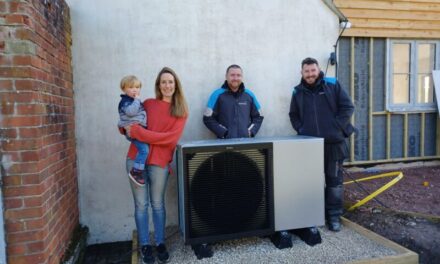The fifth annual Global Energy Talent Index (GETI) shows that power professionals remain optimistic for the sector’s prospects in spite of the COVID-19 pandemic.
The report by Airswift, the global workforce solutions provider for the energy, process and infrastructure sectors, and Energy Jobline, the world’s leading jobsite for the energy and engineering industries, reveals that 67 per cent of those working in power believe that the sector has grown over the past year and 77 per cent expect it to grow further over the next three years. Indeed, four-in-ten respondents anticipate “strong growth”.
Power professionals and hiring managers do acknowledge the pandemic as a potential barrier to growth, with 56 per cent citing it as among the biggest challenges facing the sector. However, 65 per cent of survey respondents are confident that their firm is resilient to the changes it faces. Added to this is a sense of optimism around advances in engineering techniques and technologies, which were identified by three-quarters of respondents as among the most important opportunities facing the sector over the next three years.
Janette Marx, Chief Executive Officer at Airswift, says: “There is no denying that this has been a challenging year for the energy industry, and COVID-19-related instability is certainly being felt by the workforce. Yet, power professionals seem confident in their ability to rise to the challenges ahead.
“There is always room for improvement, so it is good to see companies responding to demand from the workforce to invest in automation and digital technologies to build additional resilience into the business. Therefore, professionals should continue to request increased training and mentorship schemes to ensure they are equipped with the different skillsets that the use of such technologies requires.”
In addition to providing much-needed insights into the uncertainty posed by the events of the past 12 months, GETI is also the industry’s most comprehensive salary and mobility study. Key findings within power include:
More professionals reported a pay increase (38 per cent) than a decrease (16 per cent) this year. Nonetheless, sector pay was much less buoyant than last year
• Professionals (63 per cent) and hiring managers (60 per cent) alike are optimistic of a pay increase next year
• Eighty-eight per cent of professionals would consider relocating to another region for their job, with career progression opportunities (47 per cent) by far the most popular factor in attracting respondents to a new location
• Renewables and oil and gas remain the biggest sources of competition for talent, winning the votes of 56 per cent and 32 per cent of those open to switching sectors, respectively
Josh Young, Director at Energy Jobline, says: “Power businesses are fortunate to have a generally happy and optimistic workforce but that doesn’t mean they can be complacent. To fend off competition from renewables, employers should pay special attention to those starting out – making sure they can see a clear career path ahead of them and are excited by the opportunities they’ll have to develop along the way.”
Airswift and Energy Jobline surveyed 16,000 energy professionals and hiring managers in 166 countries across five industry sub-sectors: oil and gas, renewables, power, nuclear and petrochemicals. The report is available to download at http://www.getireport.com/download-report.





